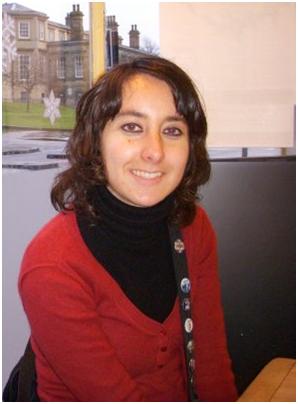Behaviour and Ecology
@ School of Life Sciences,
University of Nottingham
| Home | People | Research | Teaching | Publications | Opportunities | Links |
 Helena Ajuria (PhD, 2013)
Helena Ajuria (PhD, 2013)
Supervisor: Tom Reader
Helena finished her PhD in 2013 and returned home to Mexico to write papers and start a postdoc. Below, she describes her PhD project.Research Interests
I am a PhD student and I’m interested in the
behaviour of spiders. Spiders constitute a wide and highly varied group of
organisms that can be used as systems to study numerous aspects of behaviour,
ecology and evolution.
For my project I will be looking at the behaviour of the
crab spider Synaema globosum in
S. globosum appears rather conspicuous on many flowers,
since it is predominantly black in colour. However, it has markings on its
abdomen that can be distinguished as red, yellow or white. If this polymorphism
is genetic in origin, its maintenance could be influenced by several factors
such as avoidance of predators, attraction of prey, disruptive coloration, and
sexual selection.
My aims are to find out which cues S. globosum uses when choosing a hunting site and deciding how long to stay there, as well as which factors are responsible for the maintenance of the polymorphism in the species. I am carrying out a series of field and laboratory observations and experiments, which include surveys of spiders on different types of plants and their movement among them, observations and manipulations of flower attributes and prey frequency and abundance, rearing and crossing of spiders, mate preference experiments, observations of prey capture rates by different morphs and measurements of reflectance spectra of spiders.
My project is funded by CONACYT.
